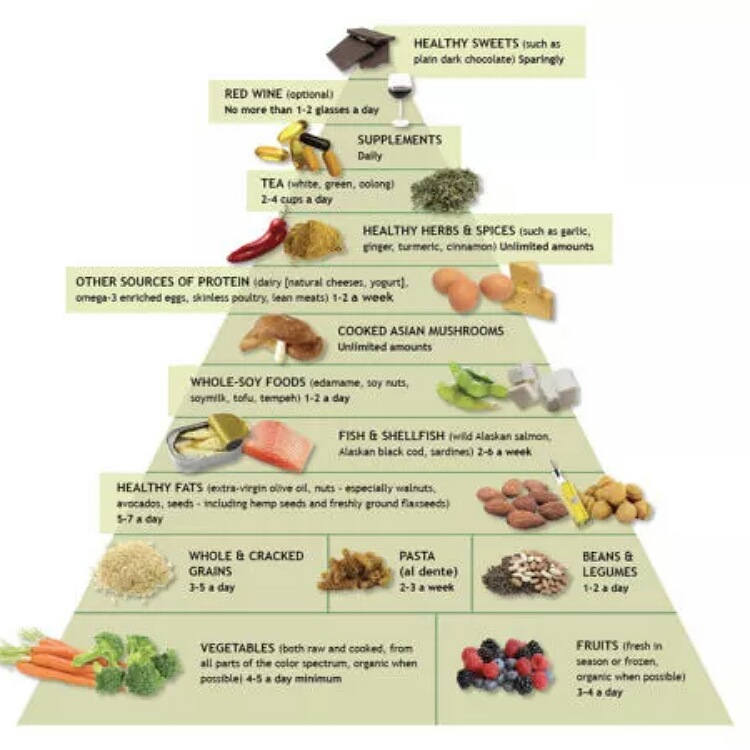Dr. Weil’s anti-inflammatory diet is a healthy diet that people of all ages can enjoy. Its basis is the Mediterranean diet with few modifications. What are its health benefits? What are it’s limitations? Who should be careful and avoid this diet?
What is Dr. Weil’s anti-inflammatory diet?
Dr. Weil’s anti-inflammatory diet is a diet that has its basis in the Mediterranean diet. Dr. Andrew Weil, an Harvard-educated doctor has designed this diet. He is a pioneer in the field of integrative medicine.

In this diet, stress is on 40-50% calories from carbs, 30% from fats and 20 to 30% from healthy fats. Depending on age, gender, size, and activity level, one has to consume around 2k to 3k of calories daily.
Dr. Weil says that it is a Mediterranean diet with extras such as green tea and dark chocolate. The diet enforces eating lots of fresh foods and fruits and vegetables. These have phytonutrients that fight inflammation, chronic diseases and cancer. Omega 3 fatty acid rich foods such as nuts, seeds, and seafoods can be taken. But avoid fast foods, fried foods, sweet foods and those with high sodium. Have more of whole grains, legumes, beans, squashes and berries.
Advantages of this diet
It fights inflammation, chronic diseases and cancer. It controls blood sugar and cholesterol. This diet is family friendly and is sustainable. It helps environment and prevents its degradation. The foods are mainly plant based and locally and sustainably grown. It can be gluten-free and kosher friendly.
The diet has less of foods containing saturated fats. Hence obesity risk comes down. If you are not taking oily fish at least two times a week, one can opt for fish oil supplement containing EPA and DHA. Tea over coffee in this diet is good to reduce caffeine effects.

Dark chocolate in this diet have beneficial antioxidants and red wine can be had in moderation. This helps heart health. Mental health improves with this diet and it helps in slow aging.
There are no strict rules, portion sizes or calories counting. Diane Javelli, a dietitian based in Kent, Washington says:
“Most people will likely benefit for following this plan because it focuses on increasing a variety of healthy, unprocessed foods, such as whole grains; lean proteins, especially fish and seafood; omega 3 fats and antioxidant/phytochemical-rich foods fruits and vegetables – all of which have anti-inflammatory properties,”
Problems of this diet
It needs meal planning in advance since processed foods are not allowed in this diet. It is a tedious diet to follow. This diet is not for weight loss.
The foods of this diet could be relatively expensive to purchase. But certain people should avoid this diet. On this, Diane says:
“Folks with high potassium levels due to kidney disease or certain medications may need to adjust the amount and size of fruit and vegetable servings or choose lower-potassium versions,”

She adds:
“Individuals with inflammatory bowel disease may benefit from this type of diet, but if in a severe flare may need to choose cooked or peeled versions of fruits and vegetables, and nut butters instead of whole nuts,”
Read here: Mediterranean style diet: The healthy diet pattern your favorite celebrities are in love with!
Moreover, she warns:
“People with fish, shellfish or nut allergies need to avoid that part of the diet but can still benefit from other (diet aspects) including the abundance of fruits and vegetables,”
